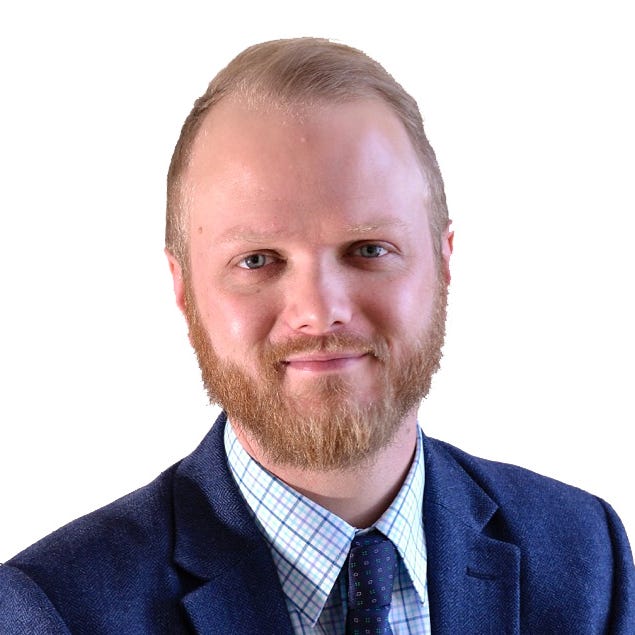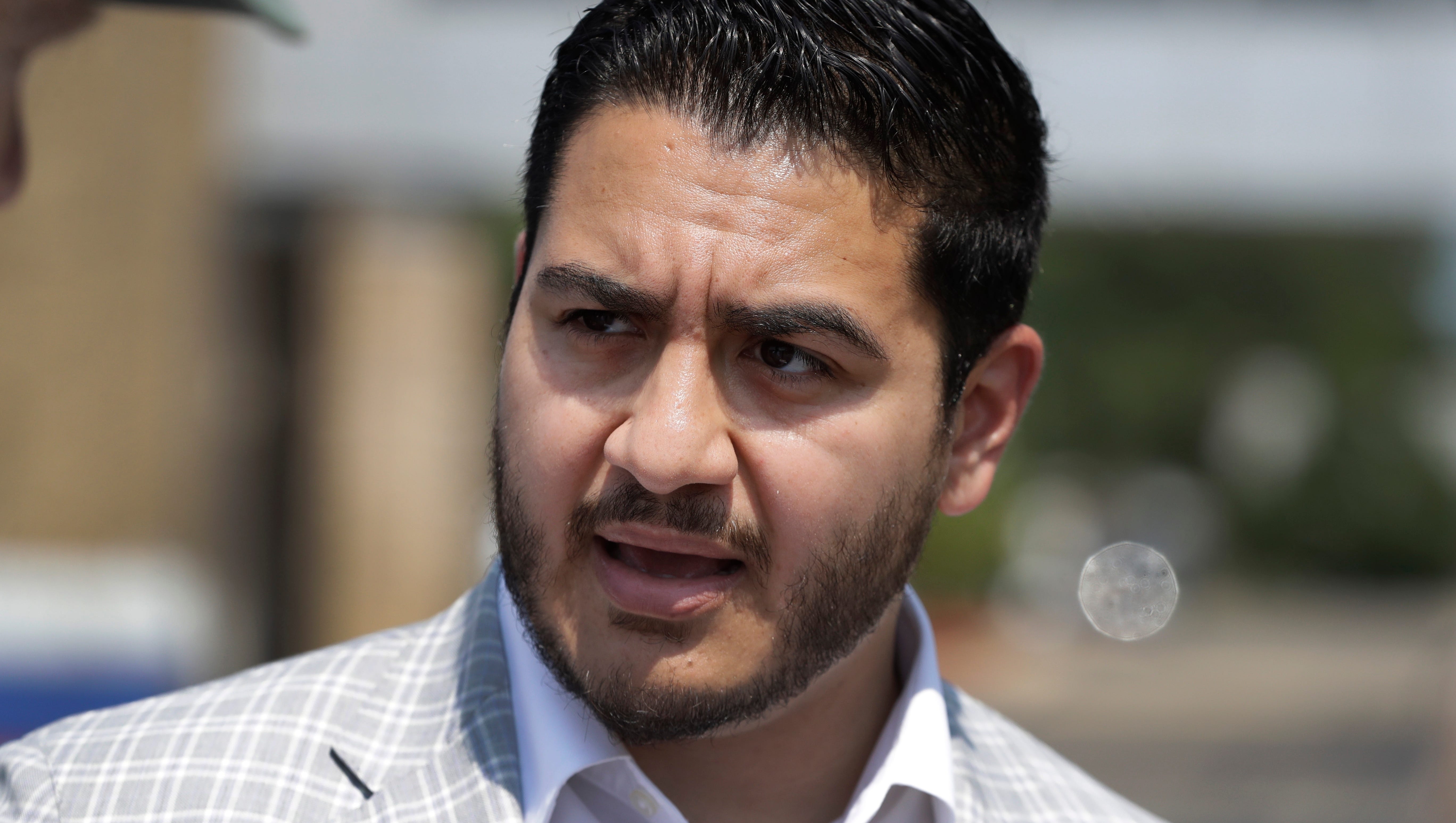El-Sayed slams 'big handouts' for corporations at biz conference
 Jonathan Oosting
Jonathan Oosting
Mackinac Island — The Michigan Economic Development Corporation should be focused on raising household incomes instead of subsidizing corporations, Democratic gubernatorial candidate Abdul El-Sayed said Wednesday at the Mackinac Policy Conference.
The 33-year-old medical doctor is embracing his outsider status at the annual gathering of business leaders, politicians and the press, where corporate sponsors keep food and drinks flowing at the opulent Grand Hotel.
“I think most folks in my position come here to rub shoulders with a bunch of lobbyists they want to get money from,” El-Sayed told The Detroit News. “I don’t take that money, so it’s a very different kind of conversation.”
El-Sayed is a favorite of the progressive left who has positioned himself as the most liberal candidate in the Democratic gubernatorial primary. As he worked the crowd at Detroit Regional Chamber-sponsored Mackinac event, El-Sayed said it’s clear the state needs to refocus the MEDC.
The private-public agency last year offered Amazon $4 billion in incentives in a failed attempt to land the online retail giant's second North American headquarters.
Michigan last month approved a $618 million incentive package for new Detroit developments spearheaded by billionaire Dan Gilbert, the largest subsidy ever awarded by the state.
“Right now, the MEDC sees itself as the arm by which corporate-bought politicians subsidize the corporations that bought them,” he said. “Instead, I want the MEDC to be focused on one critical role, which is raising median household incomes and doing so in a way that focuses and centers on small business and rural communities, rather than big handouts to these big corporations.”
The quasi-governmental agency could be used to provide micro-loans to help small businesses scale up, El-Sayed suggested.
The former Detroit health Department Director is running third in recent polls of the race, which also includes former Senate Minority Leader Gretchen Whitmer and Ann Arbor entrepreneur Shri Thanedar.
The three Democrats will share the stage with Republican candidates Bill Schuette, Brian Calley and Pat Colbeck for a bipartisan debate Thursday night.
While the conference has functioned as a celebration of economic gains made under term-limited Republican Gov. Rick Snyder, who opened the confab and will deliver a keynote address, El-Sayed said attendees he’s talked to privately admit the state is headed in the wrong direction.
His role at the conference, he said, is to share stories he’s heard from regular voters in other parts of the state.
El-Sayed has engaged business leaders like John Rakolta, a prominent GOP fundraiser and CEO of the Walbridge construction firm in Detroit. They sat in the lobby of the Grand Hotel Tuesday night and found some common ground on the importance of public schools even though they probably disagree on “99.9 percent of things,” El-Sayed said.
Rakolta, who is backing away from partisan politics after Republican President Donald Trump nominated him to be the next ambassador to the United Arab Emirates, declined to discuss their conversation.
Whitmer and El-Sayed both unveiled new jobs and tax policy proposals Tuesday on the eve of the conference. Whitmer wants to provide high school graduates with two years of debt-free college or trades training, while Thanedar wants to raise taxes on business and corporations to pay for universal child care and pre-k programs.
Those plans “parrot” his own, said El-Sayed, who has proposed making college tuition free for families who earn under $150,000 annually and universal preschool.
All three Democrats support moving to a graduated income tax, which could raise rates on the wealthy to fund cuts for the poor, but doing so would require an amendment to the Michigan Constitution.
El-Sayed said the state also needs to “rethink” its flat corporate tax. But Thanedar’s plan to raise the tax from 6 percent to 7.5 percent on businesses with gross receipts over $350,000 could “cripple” small business. “It’s about getting the big guy to pay their fair share,” he said.
joosting@detroitnews.com